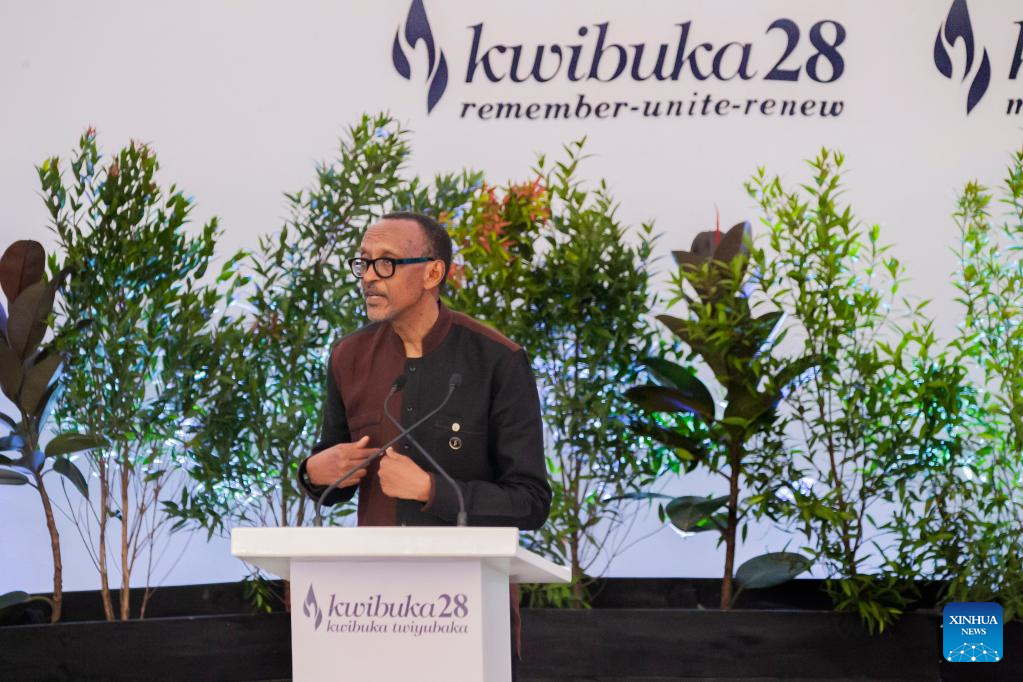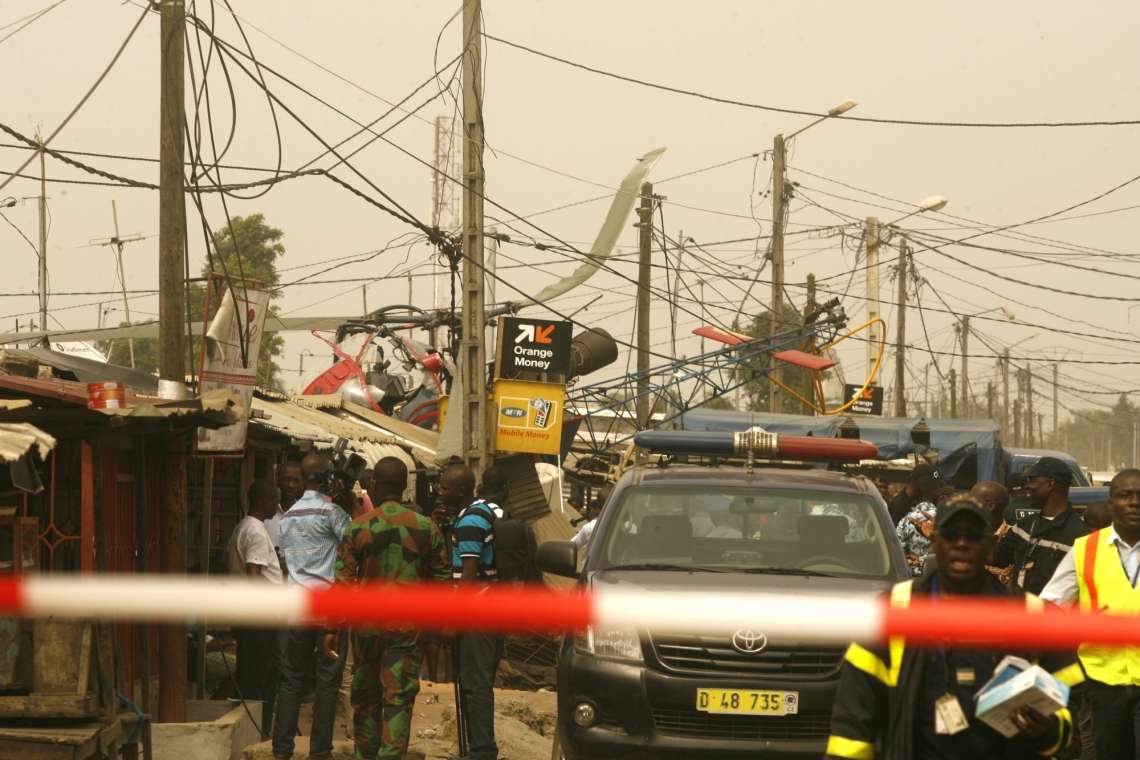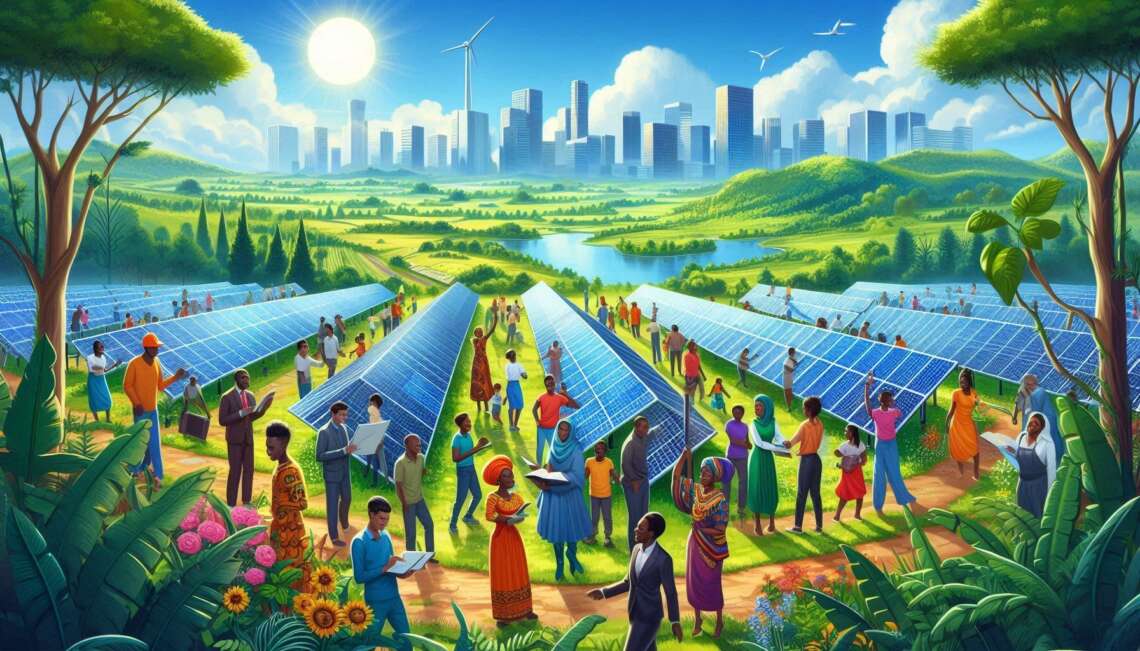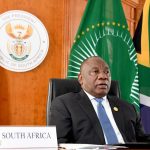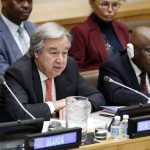Since the end of March, the March 23 Movement (M23) has been on the offensive in the eastern DRC province of North Kivu, causing thousands of civilians to be displaced. The DRC authorities accused Rwanda of secretly supporting the rebels to destabilize the east part of the country, while Rwanda has denied the allegation.
President Felix Tshisekedi of the Democratic Republic of the Congo (DRC) and his Rwandan counterpart, Paul Kagame, agreed on a de-escalation process after the resurgence of a rebel group had fuelled tensions between the two countries.
The consensus was reached after a tripartite meeting brought together the two leaders and Angolan President Joao Lourenco as a mediator in Angola’s capital Luanda, which was convened at the request of the African Union. The meeting was aimed at helping restore confidence between Kinshasa and Kigali, according to a statement released by the DRC presidency.
Since the end of March, the March 23 Movement (M23) has been on the offensive in the eastern DRC province of North Kivu, causing thousands of civilians to be displaced.
The DRC authorities accused Rwanda of secretly supporting the rebels to destabilize the east part of the country, while Rwanda has denied the allegation.
At a press briefing on Wednesday, the leaders confirmed that the Rwanda-DRC Joint Permanent Commission, which had not met for several years, will be revived, as part of the de-escalation process they have agreed upon.
The commission will hold a meeting on Tuesday in Luanda over such issues as the normalization of DRC-Rwanda diplomatic relations, an immediate cessation of hostilities and an unconditional withdrawal of the M23 rebels from the DRC, said the statement of the DRC presidency.
Earlier, the government of the DRC has said that it welcomes the deployment of a new regional military force led by the East African Community (EAC), without the participation of Rwandan soldiers, to enforce peace in provinces targeted by the rebels.
Tensions continue running high in DRC’s northeastern North Kivu province with heavy fighting between Congolese soldiers and M23 rebels that have been on the offensive since late March and reportedly took control by force of multiple townships. Besides, relations between the two neighbors are now on thin ice over Kigali’s alleged hidden agenda to “occupy” Congolese resources by supporting the M23.
Since late March, M23 has been on the offensive in the North Kivu province, with thousands of civilians displaced by ongoing fighting. Bunagana, a key strategic town bordering Uganda, reportedly fell into the hands of rebels Monday. Late Friday, the M23 claimed to have taken control of two more villages within the province’s Rutshuru territory.
Kenyan President Uhuru Kenyatta, who currently chairs the EAC, called for the immediate deployment of a new regional military force to try to stop rebel violence in the eastern DRC, where dozens of armed groups have been active for more than two decades.
In an interview with the French media France 24 Friday, however, Rwanda’s top diplomat Vincent Biruta not only “supported” the deployment of the regional military force but also announced that Rwanda “is ready to send its men to this regional force.”
As the two neighbors accused each other of supporting rebels opposing respectively to each side, the two countries have gone from trading verbal blows to taking serious actions, and the bilateral relations are now on thin ice.
After shutting down all flights of RwandAir, the flag carrier airline of Rwanda, to the DRC soil, the DRC President Felix Tshisekedi decided Wednesday to ask its government to “suspend all protocol agreements, agreements and conventions” concluded with Rwanda.
The DRC closed its borders with Rwanda in the South Kivu province (eastern DRC) from 3 p.m. till 6 a.m. starting Friday after a Congolese soldier was shot dead by the Rwandan army inside Rwandan territory earlier that day. The Rwandan side accused the Congolese soldier of having fired indiscriminately at Rwandan security personnel and civilians.
ALSO READ:Rwanda Meet Sets New Agenda For C’Wealth
The two neighbors share complicated relations since the Rwanda genocide in 1994, as Rwandan Hutus accused of slaughtering Tutsis during the 1994 Rwanda genocide arrived in eastern DRC. President Tshisekedi and his Rwandan counterpart Paul Kagame have attempted to mend the fences by signing three cooperation deals in 2021.
It is already an open secret that Kinshasa has been upset about Kigali’s alleged support of M23 for a long time, but President Tshisekedi has been cautious not to mention Rwanda by name. In early June, President Tshisekedi cut to the chase in his first public remarks about the alleged Rwanda-M23 collusion, asserting that there was “no doubt” that Rwanda was backing the M23 on the Congolese territory.
According to the Congolese government statement released Friday, President Tshisekedi went even further by stating that Rwanda is after DRC’s land and metal resources.
“The security situation in the east of the country continues to deteriorate, and fundamentally because Rwanda seeks to occupy our land, rich in gold, coltan, and cobalt, for their own exploitation and profit,” the statement quoted President Tshisekedi as saying. “This is an economic war for the battle of resources, fought by Rwanda’s terrorist gangs.”
Kigali has not yet made any direct comment on Kinshasa’s latest accusations.
Amid all the tiffs and tit-for-tat, regional mediation has been in motion with a possible tete-a-tete between the two presidents in Angola, under the mediation of the Angolan President Joao Lourenco, in an attempt to bury the hatchet and restore the fragile peace in eastern DRC.
To this day, however, the meeting is still pending as neither of the two countries has yet confirmed or announced any detail of the rendezvous.
“I commend The efforts of President Lourenco. The Rwandan government has accepted the principle of a meeting between the three heads of state in Luanda and a first proposal for the date. We are waiting for the DRC to confirm. It is a matter of weeks,” said Biruta, the Rwandan foreign minister, in an interview with the French magazine Jeune Afrique published Friday.


